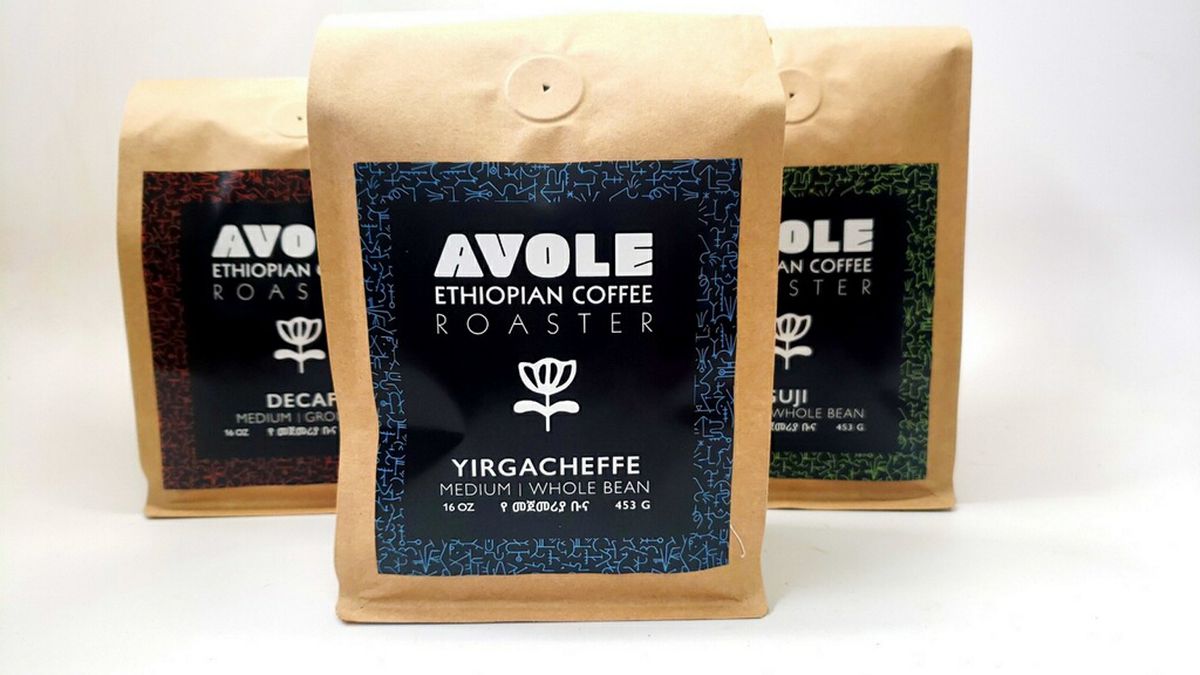Africa-Press-Ethiopia
Solomon Solomon Dubie, the founder and co-owner of Avole Coffee, still remembers his first attempt at making coffee for his mother. He was 8 years old, growing up in Queen Anne in the mid-’90s, and he set an alarm for early in the morning. He intended to copy what he’d seen his mom do many times before — roast raw, unwashed beans slowly in a pan. Instead, he burned the coffee and woke her up. Undeterred, Dubie kept at it.
“I just remember her showing me and I just remember doing it over and over again, and getting better at it,” he says. Eventually, his mom taught him the intricacies of the Ethiopian coffee ceremony, and after some practice, Dubie became the primary coffee maker of the household.
In the years since, that ceremony has played a key role in all of Dubie’s important life moments — birthdays, times of loss, family gatherings. Some of his earliest coffee memories are of his mother having friends over or talking on the phone with her best friend while getting the coffee prepared.
A standard version of the ritual involves hand-roasting the beans and serving three cups of coffee from the jebena, a traditional Ethiopian ceramic coffee pot. “The coffee roasting is the biggest highlight of energizing the space,” Dubie says, describing how his mother would turn on the stove, put the beans in a pan, and let them fry and pop.
Once they’d changed color, she would grind the beans by hand and place the grounds in the jebena to brew. From a technical perspective, it demanded precision: She had to roast the beans deeply enough to draw out their character and complexity, but know how to pull them just before the toasty aroma that perfumed their kitchen turned to acrid smoke. But the ceremony had always involved more than just the mechanics of making coffee; it was about sharing food and connecting with people and had been a vital part of the social life in Ethiopian villages for centuries.
The origins of coffee itself can be traced back to Ethiopia. Legend has it that around A.D. 850, a young Abyssinian goatherd named Kaldi (also spelled Khalid) noticed that the animals he tended to were more energetic after eating certain berries from certain trees growing on the Ethiopian plateau. Curious about the nature of the fruit, Kaldi tried the berries himself and felt the same invigorating effect. He then approached a local monastery in Kaffa, where the monks, intrigued by Kaldi’s discovery, produced a beverage from the boiled coffee cherries that eventually spread throughout the Arabian peninsula and the world.
“Some families in Ethiopia have been producing coffee for thousands of years,” says Dubie, who continues to develop close relationships with small producers who understand the deep history and nuances of Ethiopian coffee. He’d like to ensure that regional varieties are better understood in the coffee world, such as Guji coffee from the southern part of the country, which Dubie describes as more fruity with citrus notes (the flavor profile also depends on the year and the specific crops).
In the past, Dubie has offered subscriptions for the roasts he retails, and he has future plans to bring single-origin Avole K-cups for coffee drinkers to brew at home.
But Cafe Avole’s new location isn’t just connected to Ethiopian coffee history — it will be a part of local history as well. It was specifically selected for the Liberty Bank address through the nonprofit Community Roots Housing, which manages the property in collaboration with other local organizations, including Africatown Community Land Trust, Byrd Barr Place, and the Black Community Impact Alliance.
Beginning in 2018, Dubie started a pitch process with Community Roots, a group with a mission to develop affordable housing opportunities across Seattle through community-driven efforts. Once Cafe Avole was chosen for the available retail space in the residential building, Dubie and the shop’s co-owners had to go through additional rounds of discussions to sort out the lease and work through design plans.
“We were committed to bringing in local Black-owned businesses that also met the vision of empowering the African American community and building a vibrant hub for the community,” says Yiling Wong, communications manager for Community Roots.






